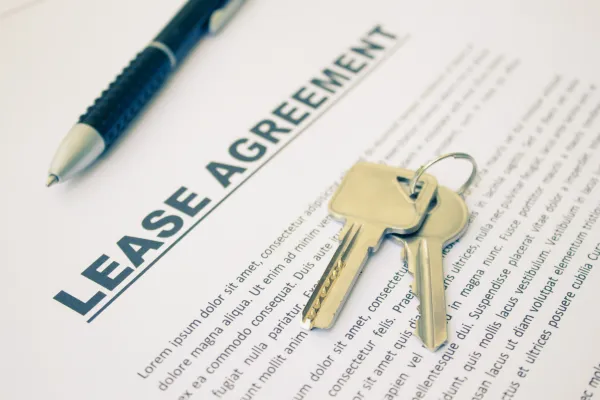
How Lease Loans Work (And Why the Math Is So Sneaky)
"Why buy a spaceship when you can have this car? It’s out of this world!"
- Chase | Car deal dad joke writer | Not very good at it...
Week 14 – How Lease Loans Work (And Why the Math Is So Sneaky)
Welcome to Week 14 Deal Guard Nation!
If you’ve ever been tempted by the low monthly payments on a car lease, this post is for you.
Leases can be awesome—IF you understand how the numbers really work. Most people don’t. And that’s how they end up confused, overpaying, or stuck in something they regret.
So let’s break it all down. I’m gonna show you how lease loans are actually built—step by step.
Tactic #14: Understand the Math Behind a Lease Before You Sign
Why This Matters
Lease payments look cheap because:
You’re only paying for a portion of the car’s value
You’re not buying the whole car—just renting it for a few years
But just like a regular loan, leases include:
Interest
Taxes
Fees
Down payments (sometimes)
And they come with rules: mileage limits, wear & tear penalties, and a possible balloon payment if you want to buy the car later.
Let’s walk through it.
Step-by-Step: How Lease Loans Are Calculated
Step 1: Understand What You’re Actually Paying For
When you lease a car, you’re paying for the car’s depreciation during the lease.
Example:
MSRP: $35,000
Residual Value (after 3 years): $20,000
Depreciation = $15,000
That $15K is what you’re actually financing.
But that’s not all…
Step 2: Key Lease Terms You Need to Know
Here’s the glossary nobody explains:
MSRP – Sticker price of the car
Capitalized Cost (Cap Cost) – Price you negotiate for the lease
Residual Value – What the car is expected to be worth at lease end
Depreciation – Cap Cost minus Residual (this is what you pay off)
Money Factor – This is the interest rate on a lease (but they disguise it)
Lease Term – How many months (usually 24, 36, or 39 months)
Step 3: What’s the Money Factor?
The money factor is a sneaky version of your interest rate. To find your actual APR, you multiply the money factor by 2,400.
Example:
Money Factor = 0.00125
APR = 0.00125 × 2400 = 3%
Always ask:
“What’s the money factor, and how does that translate to APR?”
A shady dealer might mark it up to boost their profits. Compare it to current loan rates.
Step 4: Add It All Up: Your Lease Payment Includes...
Your monthly lease payment is based on:
Depreciation fee (cost of car’s lost value)
Finance fee (money factor × cap cost + residual ÷ 2)
Taxes (monthly in most states)
Any fees (acquisition fee, registration)
It’s NOT just the car price—it’s all the above blended into a single number.
Step 5: Don’t Forget the Fees and Upfront Costs
Common lease costs include:
Acquisition Fee ($595–$1,095)
Disposition Fee ($350–$495 when you return it)
Security Deposit (some leases still require this)
Down Payment (optional—but lowers your monthly)
Be sure to ask:
“What’s due at signing, and what’s included in the monthly?”
Step 6: Lease-End Options
At the end of the lease, you typically have three choices:
Return the car and walk away (fees may apply)
Buy the car at the residual value (if you love it)
Lease something new and repeat
If the car is worth less than the residual—walk away.
If it’s worth more—you might want to buy it or flip it.
Pro Tip: Don’t Negotiate the Monthly Payment—Negotiate the Cap Cost
Just like buying, everything is negotiable.
Focus on:
Lowering the Cap Cost (sale price of the car)
Getting a lower Money Factor (interest)
Maximizing Residual Value (lower depreciation = lower monthly)
Deal Guard Concierge Tip: We Run the Lease Math For You
If you’re unsure about leasing, let us handle the math:
We verify cap cost, money factor, and residual
We break down the total cost over time
We compare lease vs finance for your budget
No tricks. Just facts.
What to Avoid
Don’t lease if you drive a LOT (over 12–15K miles/year)
Don’t sign without knowing your money factor and fees
Don’t get distracted by a low monthly payment
Don’t forget to ask about the buyout option at the end

Recap: Lease Loan Smarts
Know the lease terms: cap cost, residual, money factor
Understand what your monthly payment really includes
Get the APR by multiplying money factor × 2400
Ask about fees: acquisition, disposition, security deposit
Focus on total cost—not just monthly price
Next week we’ll show you how to refinance a bad deal and finally get your payments under control.
You’re no longer the average buyer. You’re way ahead now.
—
Considering a lease? Let us run the numbers so you don’t get stuck.
We help you compare lease vs. buy and avoid sneaky dealer math.
Go to GETDEALGUARD.COM TO LEARN MORE
Let us deal with them for you.
Our car buying concierge service confirms every detail and protects your time, money, and sanity.
Our concierge car buying service saves you hours of stress and thousands in bad deals. Your time is valuable—let’s protect it together.
Go to GETDEALGUARD.COM TO LEARN MORE
See you soon,
Chase Jordan
#carleasingexplained #leasevsbuy #moneyfactor #cardealconcierge #carnegotiationstrategy #week14
